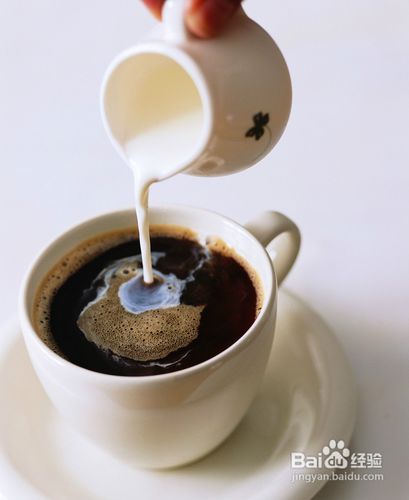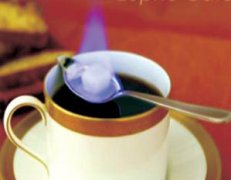A brief introduction to the history and culture of the origin, development and development of Alishan coffee in Taiwan.

"I was surprised by the performance of this sun-baked bean. It smelled dry and fragrant at first, and there was a slight over-fermentation of wine. However, after sipping it, it immediately turned into a clean, rich, multi-layered fruit with a sweet and sour flavor. There was no trace of indecent impurities. It was amazing. The texture was good and the aftertaste was profound. I was very surprised that Taiwan could make such excellent sun-baked beans!" Former President of the American Fine Coffee Association and former Director of Counter Culture Coffee/Peter. Peter Jiuliano
Taiwan is also located in the northern and southern latitudes of coffee growing gold belt, Alishan's altitude, air, quality of local brewing, temperature, are very suitable for roasting high-quality coffee beans. However, since the British first brought coffee trees to Taiwan in 1884, they have been unknown for more than 100 years. At the same time, they have not carefully cultivated them. They missed the Japanese occupation period and the American aid period.
The 921 earthquake, Taiwan's most serious earthquake, did not break the hearts of coffee farmers and enthusiasts.
The sweat and dedication of Taiwanese people were finally seen by the whole world in 2009. Alishan coffee beans stood on the world's fine coffee stage and won the honor of 11, which was the best product in Asia. For the first time in Asia, they got such a good ranking. It also made the only several organic coffee bean plantations on Alishan gain great confidence and also receive global attention.
Alishan coffee varieties are Arabica coffee, this kind of coffee growth environment is more harsh, Taiwan is located in the subtropical zone, the temperature is higher all year round, and coffee trees like shade. If coffee trees are planted alone, they may be killed by strong sunlight. The Ali Mountains are densely forested and there are many areca trees. Therefore, most of his coffee trees are planted in the areca park. Because the areca trees grow fast and have lush branches and leaves, they can not only absorb sunlight but also get shade early, which is very suitable for the growth of coffee. In the coffee garden in Ali Mountain, coffee trees are hidden in the shade of areca trees. Coffee trees grow very strong and produce relatively good coffee. Coffee trees are planted in Taiwan, and coffee plants emit different fragrances and tastes according to different places of cultivation. It is still a coffee variety with great personality. It has become Taiwan's Alishan coffee. Taiwan's coffee is very popular in recent years. The history of Taiwan coffee [4] can be traced back to 1624. In the early days, the Dutch introduced coffee, but it was only limited to Dutch internal drinking, so it could not be widely promoted. During the Japanese occupation period in 1931, the Japanese invaders vigorously mobilized farmers to grow coffee for their own needs and for their own interests in Taiwan coffee, so many farmers lost fertile land for planting rice. Although coffee is harvested every year, coffee is not profitable and food is lost, and many coffee farmers work for life without food. Mr. Kimura planted in the northern part of Tainan Prefecture, Alishan, Nantou and Yunlin, and cultivated in large quantities.
In 1941 (16th year of Japanese Showa), most of the original beans were shipped back to Japan. Taiwan coffee planting area has reached 75 hectares, heyday has been "the largest coffee factory in the Far East," said. In 1945, after the war, Taiwan's coffee cultivation area expanded to 113 hectares. After Japan surrendered, Taiwan recovered, and the Nationalist government vigorously advocated the cultivation of good farmland and cash crops. The Alishan aborigines hoped to use the countryside or mountains to grow some food to fill their stomachs. No one wanted to grow coffee that tasted as bitter as life. Therefore, Taiwanese coffee gradually declined and was slowly forgotten by people. In 2000 (Republic of China 89 years), until the Taiwan government propaganda, Chiayi County government's strong support, local farmers only widely re-planted coffee, Taiwan coffee gradually revived, and in recent years has been good development, deeply loved by more people.
Alishan coffee is the most special and superior coffee in Taiwan, and the yield is small, and the rare is expensive. Alishan Mountain, located 75 kilometers east of Chiayi City, Taiwan, is located at an altitude of more than 2000 meters. It is adjacent to Yushan Mountain Range and Yushan National Park in the east. It is surrounded by high mountains and has a cool climate. The average temperature is 10.6 degrees Celsius, the average summer temperature is 14.3 degrees Celsius, and the average winter temperature is 6.4 degrees Celsius. The taste is neither bitter nor astringent, and the flavor is mellow and rich. Alishan's unique climate and altitude conditions breed high-quality mountain tea, orchids and horseradish (wasabi) called the best by the Japanese. Taiwan's No. 1 coffee, however, is not in Kukeng or Dongshan, but in Mount Alishan, where a deadly aroma wafts from Le Nomura.
From then on, the vision of coffee plantation owners in Taiwan was broadened, and they put more effort into coffee cultivation. They knew more about collecting global fine coffee information, knew more about cup testing, and paid more attention to post-production. In 2014, in the Q Certificate certification of the American CQI Coffee Quality Association, Taichung's Dragon Coffee Organic Ecological Park scored 84.41 points, and Alishan Tropical Dance Manor's coffee beans scored 84.67 points, directly killing many global fine coffee beans, even with Kenya AA. In 2015, the score was more than 85 points, which opened up a distance from the opponent.
Unfortunately, Taiwan is too small, the annual total coffee production is not more than 700 tons, not to mention the Alishan competition award-winning beans production, is even scarcer, has become the world's experts to compete for high-quality cultivation. During Taiwan's 130-year coffee cultivation period, Taiwan has produced eight major production areas. Now, in addition to producing world-class fine coffee, this land has nurtured many global heavyweight coffee giants. In 2013, Chen Zhihuang won the Nordic Roaster Cup Roast Bean Championship, Lai Yuquan won the World Cup Roast Bean Championship in 2014, and Liu Bangyu won the World Cup Test Championship. Talent emerges...
Yesterday received this precious package, my friend wrote: Egg, the 1/4 pound coffee beans you received today are the pride of Taiwan coffee beans, but also the pride of my hometown Tainan, the 11th SCAA score in 2009 is Taiwan manor coffee beans, the best ranking in the world, 85.57 points in 2013 got 12, but also the best score of Taiwan beans at present. The owner of Tropical Dance Manor, Li Gaoming, is an entrepreneur in Tainan. The company is located in Madou Town near my home. I met him through my father and uncle. The coffee tree is a low-yield tibeka. It is planted on Alishan Mountain at an altitude of 1200 meters. The associated shade trees are citrus and longan. They are organically grown and certified by the American Coffee Association. Tropical Dance Farm uses rotation fallow farming to allow organic soil to fully cultivate, so only 2.5 hectares of land can be harvested at present, and 1 hectare can only produce 500 kilograms of jam fruit. This batch of beans we have obtained has not been damaged by cold. It is the best batch of beans last year-you should know how difficult it is to obtain beans. This batch of beans is even more rare. The baking bean master is Chen Zhihuang, the world champion of the Nordic baking bean competition in 2013. He baked them with the Guest M3 small machine and baked them with the Nordic fire. It is said that there is sugar cane fragrance.
Important Notice :
前街咖啡 FrontStreet Coffee has moved to new addredd:
FrontStreet Coffee Address: 315,Donghua East Road,GuangZhou
Tel:020 38364473
- Prev

A brief introduction to the description of the flavor and aroma characteristics of Taiwan Alishan coffee with mellow flavor and rich flavor.
In Taiwan, which is also on the golden belt of coffee cultivation in the north and south latitudes, the altitude, air, local brew quality and temperature of Alishan are all very suitable for baking good coffee beans of high quality. However, since the British first brought coffee trees to Taiwan in 1884, they have been unknown for more than 100 years. At the same time, they did not cultivate them attentively, and they missed the Japanese occupation period and the American aid period.
- Next

A Brief Introduction to the Planting Market Price of Taiwan Alishan Mafei Coffee Varieties with Rare Yield
Yesterday received this precious package, my friend wrote: Egg, the 1/4 pound coffee beans you received today are the pride of Taiwan coffee beans, but also the pride of my hometown Tainan, the 11th SCAA score in 2009 is Taiwan manor coffee beans, the best ranking in the world, 85.57 points in 2013 got 12, but also the best score of Taiwan beans at present. Tropical Dance Manor Old
Related
- Does Rose Summer choose Blue, Green or Red? Detailed explanation of Rose Summer Coffee plots and Classification in Panamanian Jade Manor
- What is the difference between the origin, producing area, processing plant, cooperative and manor of coffee beans?
- How fine does the espresso powder fit? how to grind the espresso?
- Sca coffee roasting degree color card coffee roasting degree 8 roasting color values what do you mean?
- The practice of lattes: how to make lattes at home
- Introduction to Indonesian Fine Coffee beans-- Java Coffee producing area of Indonesian Arabica Coffee
- How much will the flavor of light and medium roasted rose summer be expressed? What baking level is rose summer suitable for?
- Introduction to the characteristics of washing, sun-drying or wet-planing coffee commonly used in Mantenin, Indonesia
- Price characteristics of Arabica Coffee Bean Starbucks introduction to Manning Coffee Bean Taste producing area Variety Manor
- What is the authentic Yega flavor? What are the flavor characteristics of the really excellent Yejasuffi coffee beans?

